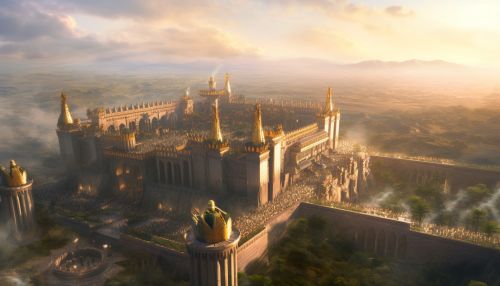Neo-Babylonian Empire
Origins and Establishment
The Neo-Babylonian Empire, also known as the Chaldean Empire, was a period of Mesopotamian history which began in 626 BC and ended in 539 BC. During the preceding three centuries, Babylonia had been ruled by their fellow Akkadian speakers and northern neighbours, Assyria. A year after the death of the last strong Assyrian ruler, Ashurbanipal, in 627 BC, the Assyrian empire spiralled into a series of brutal civil wars.


Reign of Nabopolassar
Nabopolassar, a previously unknown Chaldean chieftain, suddenly declared himself the king of Babylon in 626 BC and began a systematic campaign to overthrow Assyria and destroy it completely. The Assyrians, weakened by internal strife and civil war, were unable to resist the Babylonians thus the city of Nineveh was sacked in 612 BC, and the seat of empire was transferred to Babylon.
Reign of Nebuchadnezzar II
Nabopolassar was succeeded by his son Nebuchadnezzar II, whose reign of 43 years made Babylon once more the mistress of the civilized world. Only a small fragment of his annals has been discovered, relating to his invasion of Egypt in 567 BC, and referring to "Phut of the Ionians". Despite the absence of further direct evidence, it is generally agreed that this invasion took place.
Cultural Achievements
The Neo-Babylonian period was a renaissance that witnessed a great flourishing of art, architecture, and science. The Babylonians made significant advances in astronomy and mathematics, their system of arithmetic was sexagesimal, or a base 60 numeral system, from which comes our modern day usage of 60 seconds in a minute, 60 minutes in an hour, and 360 degrees in a circle.
Fall of the Empire
The empire fell to the Persians under Cyrus the Great in 539 BC. Despite the empire's power and prosperity, it was unable to withstand the onslaught of the Persians, who had been growing in power for several decades. The end of the Neo-Babylonian Empire marked the end of the ancient era of Mesopotamian history.
